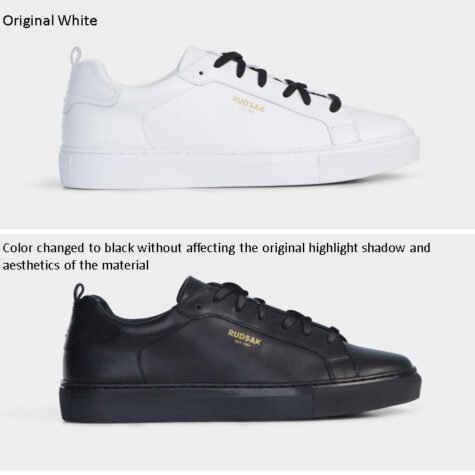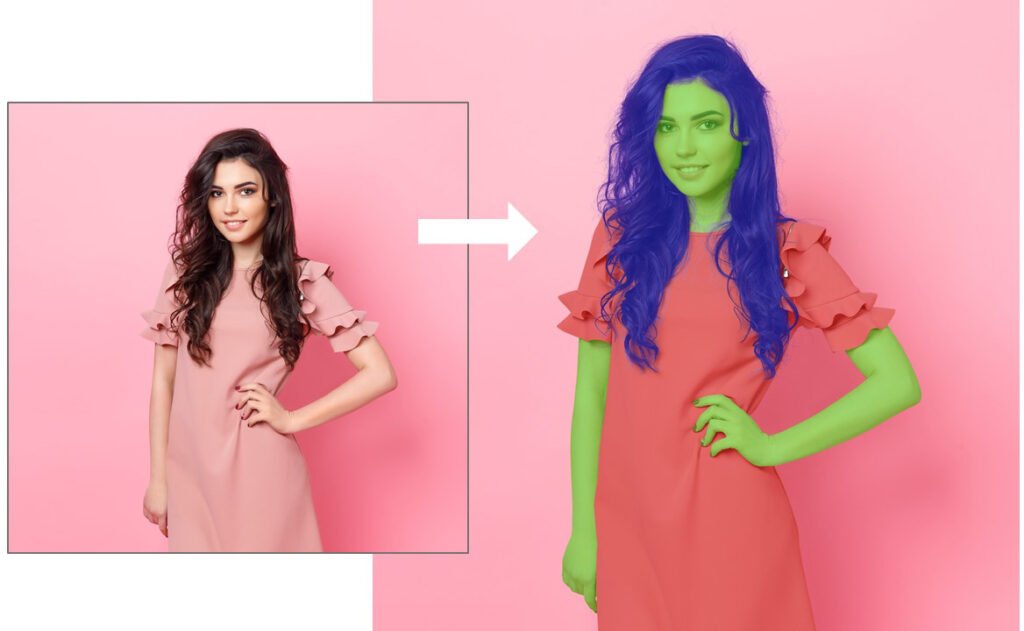
20 Information Security Questions to Ask Potential Post-Production Vendors
In today’s digital landscape, information security has become a paramount concern for businesses across all industries. The proliferation of cyber threats and data breaches has underscored the need for robust information security (infosec) measures to protect sensitive information. This is especially critical for post-production companies that provide Professional Photo Retouching and video editing, catalog management, and Photo Editing Services, as they routinely handle valuable and confidential content.
However, if you look at the Facebook and Cambridge Analytica scandals in 2018, the former dealt with a huge privacy issue. Back then, there were no active hackers, outages, or viruses. Still, the tech giant failed to handle its users’ data. It was all because of a third-party vendor! Facebook simply gave too much access to the wrong app developer.
This scandal is a real-life lesson of how third-party vendors play a critical role in the information security ecosystem of any organization.
Vendor Failures Means Your Failure (So Assess the Infosec Risk)
When collaborating with a vendor, you shouldn’t abstain from the responsibility of how that vendor handles proprietary data. Remember that their failures can lead to a setback for your company as well.
Breaches, viruses, or data deft can increase the risk for your firm in multiple ways, from exposing trade secrets to violating contracts and deteriorating your brand value. So, you must ensure your post-production vendor adheres to stringent Information Security Management protocols to protect sensitive content and your company’s reputation.
It’s when a Vendor Risk Assessment comes in handy!
All you need to do is create a post-production vendor risk profile, and you should primarily consider it when evaluating potential vendors, alongside their pricing structure, photo retouching, video or Photo Editing Services, quality, or scalability. The risk assessment involves a thorough evaluation of the vendor’s security protocols, practices, and infrastructure. Only by asking the right questions can businesses ascertain the level of security a potential vendor provides and make informed decisions that minimize risk.
So, jump straight to uncover the infosec risks of an outsourced post-production vendor, infosec questions to ask the potential vendor, and explore the MubyTech information security setup.
What are the Infosec Risks?
Here outlined are the infosec risks you can face when collaborating with the post-production vendor indulged in Photo Editing Services, video editing, color swatch matching, photo cutout, background removal, Professional Photo Retouching, or catalog management services:
- Digital Asset Theft
Picture this: As a leading media company, you outsourced a post-production vendor to edit and retouch your brand promotional videos. However, your vendor suffered a data breach. Cybercriminals accessed your unfinished promotional videos, modified them, and sold them to another media firm. The leak resulted in thousands of dollars in lost revenue and damaged the company’s reputation.
Don’t lose control and outsource post-production services to a firm complying with Digital Asset Theft Prevention measures.
- Hacking
You have authorized your unsecured post-production vendor to use your proprietary systems for easy access to necessary content. In such a case, you never know who’s gaining access in your vendor’s name.
By collaborating with an unsecured vendor coupled with your unprotected proprietary system, you are only making your company vulnerable to hacking and exploitation. So, follow appropriate data protection measures and partner with a secured third-party vendor.
- Trade Secret Theft
So, what’s proprietary? If you are operating a media company, your photography and workflow techniques will be your proprietary. Don’t let your props, photography equipment, lighting settings, local digital assets, location ideas, and more be stolen by working with unsecured post-production vendors.
- Viral Infections
Vendors using unsecured systems can easily get hacked or infected with viruses and worms. Moreover, these infections can spread to your platforms, infecting your entire customer or client database.
- Outages
Unsecured systems are more likely to crash. They are vulnerable to viral infections and DDOS attacks or can even fail. Insecure post-production vendors can cost you millions of dollars with their unreliable systems.
- Legal Liability
Failure to comply with industry regulations and standards, especially for publicly traded organizations, can result in legal penalties and loss of business.
So, before engaging with any post-production vendor, make sure to conduct a detailed risk assessment to know how they secure Outsourced Retouching Security while covering the vulnerabilities mentioned above.
20 Information Security Questions to Ask Every Post-Production Vendor

The first step to building a risk profile for any post-production vendor is to map out the process of how they deliver Professional Photo Retouching, color profile conversion, video editing, catalog management, image masking, color correction, or Photo Editing Services. Who accesses your digital assets, how are they secured at each stage, and how is authorization controlled?
Other than that, to ensure that a potential post-production vendor meets your information security requirements, consider asking the following 20 questions:
- What measures do you have in place to protect against insider threats?
- What hardware and software does your company use to protect digital assets and monitor integrity?
- How do you ensure the security of data in transit and at rest?
- What information security certifications does your company hold?
- Can you provide details of your data encryption practices?
- What are your access control policies, and how are they enforced?
- How do you monitor and detect unauthorized access or anomalies in your systems?
- What is your incident response plan in the event of a data breach?
- How often do you conduct security audits and vulnerability assessments?
- Can you provide a summary of your employee security training programs?
- What are your policies regarding remote access to your systems?
- How do you ensure the security of your network infrastructure?
- What is your policy for handling third-party contractors and subcontractors?
- How do you ensure compliance with relevant industry regulations and standards?
- Can you provide references from other clients regarding your information security practices?
- How do you manage and dispose of data once a project is completed?
- What kind of intrusion detection and prevention systems do you use?
- How do you secure your cloud environments and data storage?
- Can you provide details of your disaster recovery and business continuity plans?
- What steps do you take to stay updated with the latest security threats and technologies?
How MubyTech Secures Outsourced Post-Production?
MubyTech, a leading post-production company, offers top-notch Photo Editing Services, video editing, Professional Photo Retouching, print-ready images, photo clipping path, and catalog management services. We exemplify the best practices, extensive control, and plans related to information security. Moreover, we have implemented a comprehensive Information Security Management framework designed to protect client content at every stage of the post-production process.
Simply put, we ensure Outsourced Retouching Security via end-to-end encryption, access control and monitoring, regular security audits, and immediate incident response and recovery. We authorize only key people to access partitioned portions of our and your systems and control this access to prevent worst-case scenarios.

Here, we have outlined everything about our information security setup:
MubyTech SSL Report Card
Since 2006, MubyTech has worked hard to enhance its platform’s security level. Thus, it scores an A+ on SSL Labs’ security report, with its official website scoring an A.
Please note that we update our software and services from time to time to deliver the best possible outcomes to our clients. For example, the web storage system we are using now might not be the one we use in six months or a year.
Robust Encryption Practices
We employ state-of-the-art encryption protocols to secure data in transit and at rest. It ensures Data Protection against unauthorized access, even if it’s intercepted during transmission.
- Transport: Please rest assured that all uploads, downloads, and management will take place over a secure connection via HTTP, SFTP, or TLS encryption.
- Storage & Caching: Your images and videos have been transported and unloaded safely. Now, what next? These digital assets enter our AWS layers and are moved between multiple regional caches around the world, depending on the editing steps they undergo. We use the most secure encryption standards to encrypt all cloud data, regardless of location.
Firewall Protection
We have seen on-site firewalls quickly become outdated. So, we prefer using a more responsive web application firewall (WAF) for Digital Asset Theft Prevention. For instance, we use CloudFlare, a PCI-compliant, continuously updating firewall across all our web properties.
Controlled Access
We have strict access control measures in place to ensure that only authorized personnel can access sensitive data. For instance, we use multi-factor authentication (MFA) and role-based access controls (RBAC) to manage permissions effectively.
- Secure Local Computers and Managed Devices: All our employees perform photo and video editing steps on managed devices on our premises. When done with their work, they disable USB drives to prevent files from exporting and malware from installing. Moreover, all our computers and devices can be accessed via Active Directory login.
- Secure Remote Access: We provide developers and administrators with remote access via VPN and multi-factor authentication, regardless of their geographical location, for immediate response in a crisis. This ensures that genuine individuals access our VPN and that all their activities are happening in a monitored and controlled environment.
Networks and Event Monitoring
We ensure all photo editing or retouching activities take place within our secure systems so that they can be actively monitored and audited. Also, we have deployed various systems and software to monitor all layers of our post-production services.
- Cloud and Local Monitoring: To continuously monitor our cloud storage and local servers and computers, we use cloud-based and open-source monitoring and real-time alerting systems. They help detect and respond to any unauthorized access attempts and suspicious events that could indicate a security threat to our company and your company.
- Incident Response and Recovery: The more value your brand has, the more vulnerable your firm is to cyber threats. In the event of a security incident, we have a well-defined incident response plan that includes immediate containment, investigation, and remediation steps. We also conduct regular drills and simulations to ensure our team is prepared to handle potential breaches efficiently.
- Regular Security Audits: We conduct regular security audits and vulnerability assessments to identify and mitigate potential weaknesses in our systems. Both internal teams and external experts perform these audits to ensure a thorough evaluation of our security posture. Moreover, this lets us fix any potential weakness before it accelerates into a real, bigger problem.

Contingency Planning
We have established comprehensive disaster recovery and business continuity plans in case something goes wrong. These plans ensure that operations and systems can be quickly restored in the event of a disruption with minimal impact on clients.
Just like we advise you to conduct a Vendor Risk Assessment, we also perform our risk assessments. Our team regularly tests and updates our contingency plans to help maintain their effectiveness and respond immediately to natural, technical, and human risks.
Third-Party Risk Assessment and Management
Once you have assessed your post-production vendor’s infosec protocols and measures, your next step is to assess the risks. Determine how likely potential risks are to occur, what their impact can be how severe the impact can be, and how to manage or mitigate those risks.
In addition, always remember that a reliable post-production vendor will always be willing to work with you to mitigate both short-term and long-term risks.
To wrap up it all!
You can’t overstate the importance of information security in the post-production industry. Any firm can lose millions and its brand value due to a data breach stimulated by partnering with a vendor that lacks robust security measures. By asking the right questions and thoroughly vetting potential vendors, you can mitigate risks and protect your valuable content.
MubyTech is committed to maintaining high information security standards while providing superior-quality video or photo editing, Professional Photo Retouching, image composition, photo resizing, catalog management, and other services. We ensure that our clients ‘ content remains secure throughout the post-production process through robust encryption practices, stringent access controls, regular audits, and comprehensive training programs.
So, when choosing a post-production vendor, prioritize information security adherence to safeguard your company’s assets and reputation.
By MubyTech
Global Image Editing Partner
Global Image Editing Partner